Everyday is Like Sunday
Due to Brussels’s role as an administrative and political center, which culminated in 2000 when the Belgian capital became the capital of the European Union, the city has witnessed a dramatic increase of office space over the past 30 years. Today, a large part of this stock is vacant. This phenomenon is especially visible in the plethora of office parks located in proximity to the international airport of Zaventem. We propose that these sites be transformed into affordable live/work spaces. These interventions should be understood as pilot projects that can be realized in different contexts, following three specific criteria.
The first criterion is that the new housing is organized according to principles typical of the union or cooperative; inhabitants would take part in a collective ownership structure. This housing would be withdrawn from the commercial real estate market; the union prevents commercial takeover by ensuring that the housing remains a communal property, and that rents remain stable in the event that the original tenants move out.
The second criterion is the organization of the housing around two spatial conditions: being alone and being together. Individual space is minimized so that one person can live in it comfortably, and collective space is increased to contain those functions usually squeezed into tiny apartments. In this way, domestic labor is exposed and shared by the collective and thus drastically reduced as an individual burden.
The third criterion is to rethink the architecture of the finishings, which has a huge impact on costs in housing. Applying finishings typical of contemporary industrial buildings drastically reduces construction costs, but also enhances the quality of spaces by getting rid of redundant details. The goal is to maintain the zero-degree architecture of the office space. Moreover, industrial materials and solutions like concrete flooring, wooden partitions, and aluminum frames are easier to clean and maintain, and will thus reduce the effort required for maintenance.
The office park can be considered the most emblematic form of “pastoral capitalism” that attempted to conceal the pressure of labor within the reassuring image of green landscape. While the office park was considered an attractive workplace in postwar suburban America, its import to Europe, beginning in the late 1970s, has been less successful. Rather than being developed by corporations, office parks in Europe are often initiated by developers as rentable spaces. Frequent turnover of tenants has made European office parks the utmost generic workplace. Often located on the outskirts of cities, they are always strategically connected to major infrastructures. It is precisely the generic character of these workplaces that makes them transformable. In the case of one single building, we propose to first demolish the non-load-bearing walls and the facade. Once the building is stripped of its facade and partitions, a circulation ring is added around the building, on which inhabitable cells are attached. In this way the interior of the office building can be freely organized according to different necessities. The abundance of space that can be found in office parks can benefit material forms of production that require a certain amount of square meters that are often not available within the dense fabric of city centers. Houses can thus be built within office parks either along their perimeters or even within the “parks” themselves, which often consist of abundant and underutilized parking lots. These houses can be conceived as flexible compositions of rooms that can be united into bigger units or remain independent cells. These rooms are no longer “domestic spaces,” but generic inhabitable spaces that can be used as a both houses or workplaces. The principle of “equal rooms” that can eventually be connected to form larger units is a way to counter the functional and gender specificity of domestic space, and to make housing adaptable for forms of life beyond the family. For this reason we aim toward a non-typological housing system in which space is reduced to the bare simplicity of the room, while services are contained within walls.

Everyday is Like Sunday
Office parks chronology 1985-1995

Everyday is Like Sunday
Office parks chronology 1995-2005

Everyday is Like Sunday
Office parks chronology 2005-2015
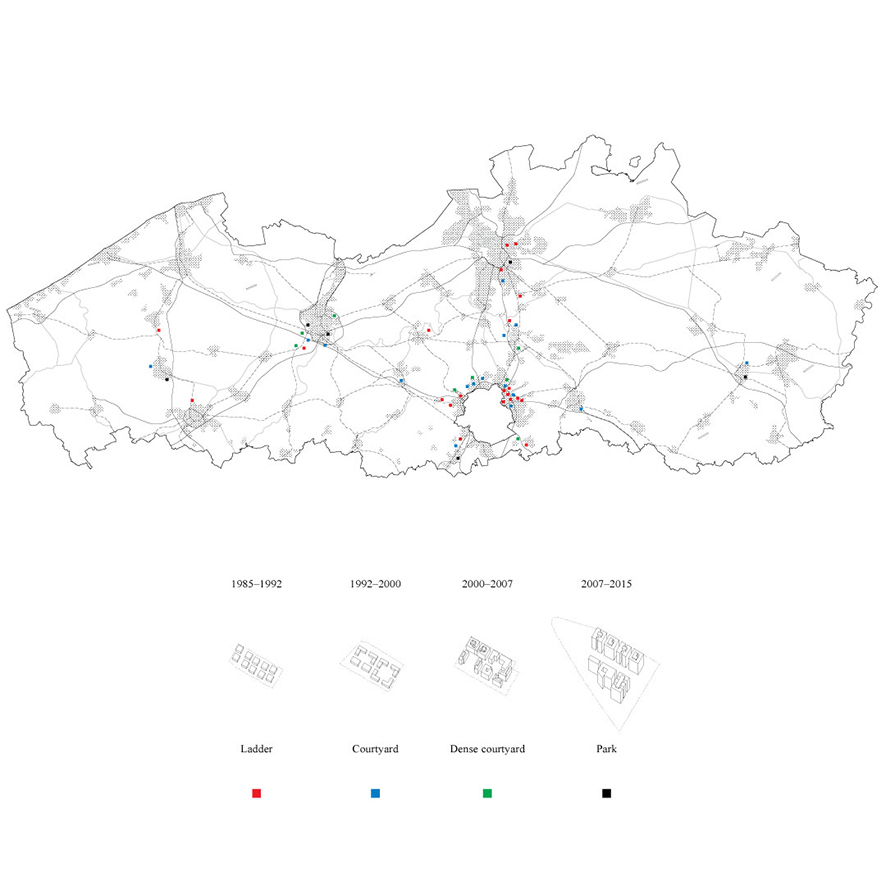
Everyday is Like Sunday
Office parks built in the 1980’s are the most problematic in their current condition but also the most suitable in terms of transformation due to their low density and the low-rise character of the built space

Everyday is Like Sunday
Transport map, Brussels
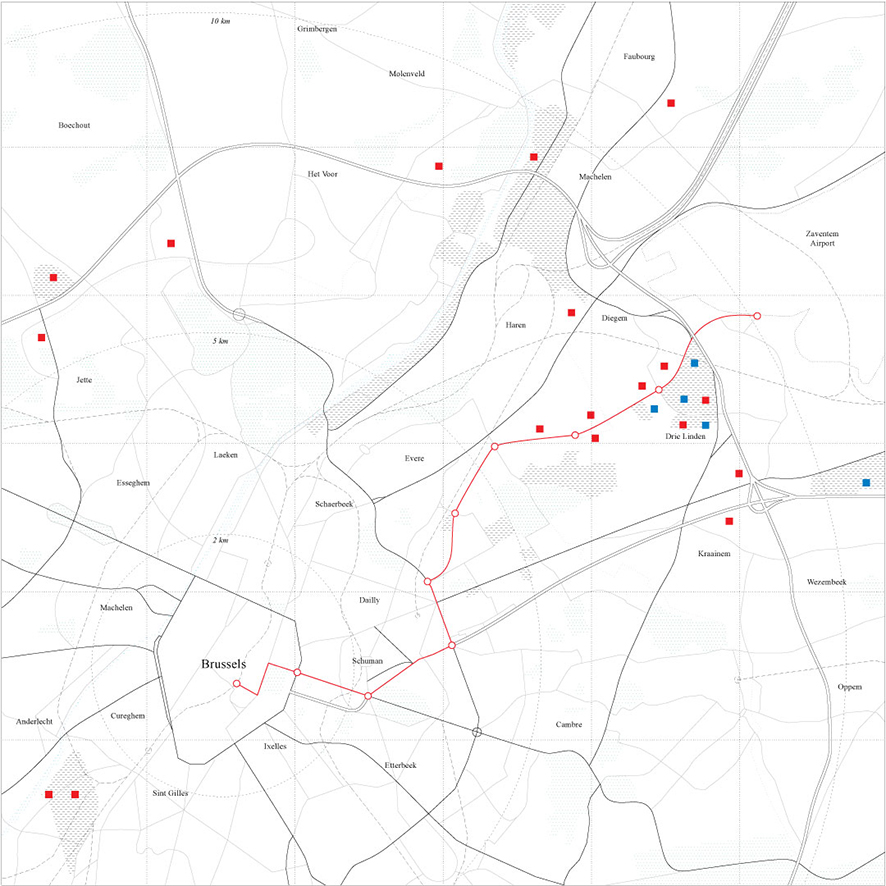
Everyday is Like Sunday
Brussels pilot sites

Everyday is Like Sunday
Pilot sites: Existing built space
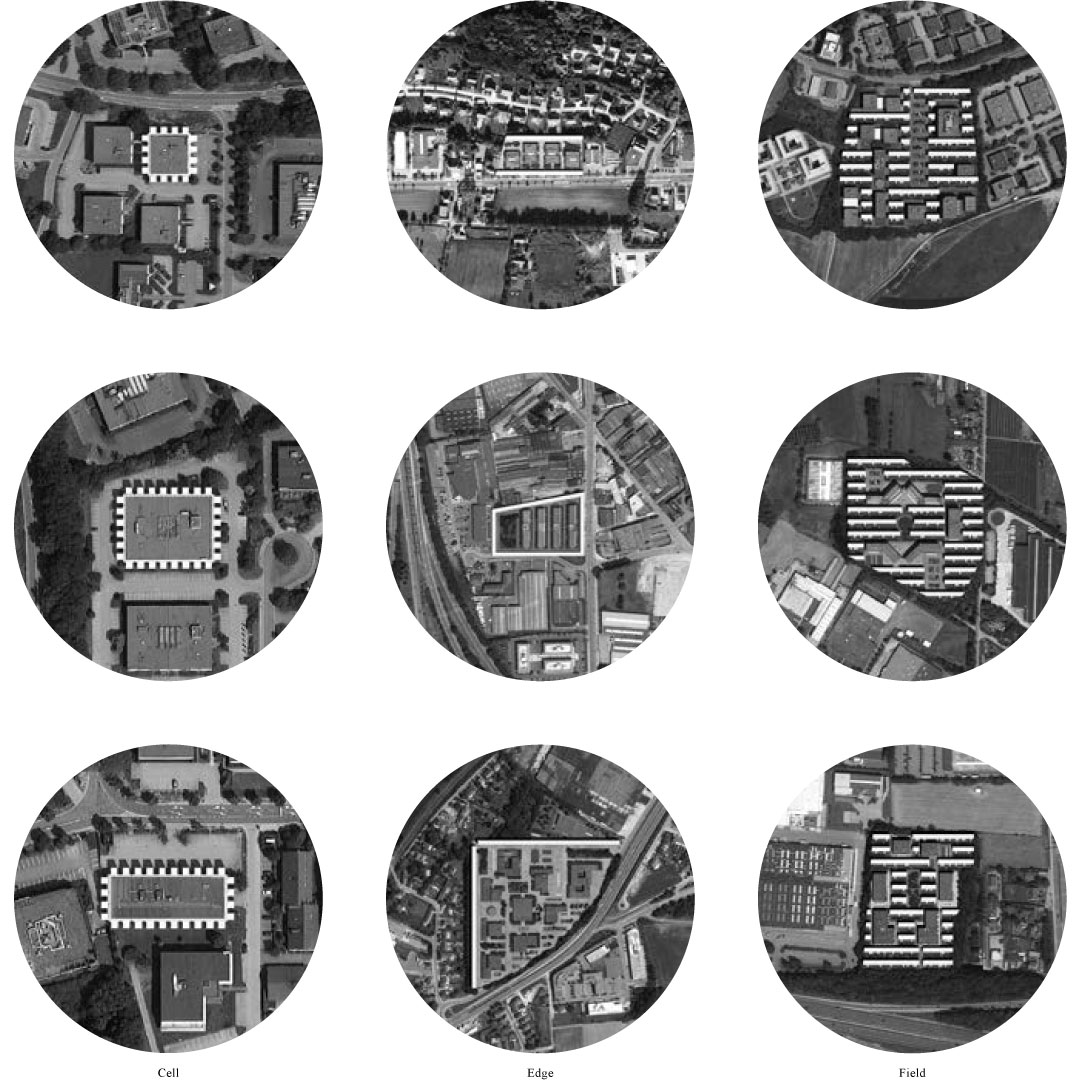

Everyday is Like Sunday
Edge plan: Sphere Business Park, Zellik. Total area 60.700 sqm. Gross floor area 26.000 sqm. Floor area ratio 0,45. Domestic units 420.

Everyday is Like Sunday
Edge Axonometric view

Everyday is Like Sunday
Housing typologies: Type A (Gallery housing) and Type B (Tower housing)

Everyday is Like Sunday
Edge: View of the room from the bed mezzanine
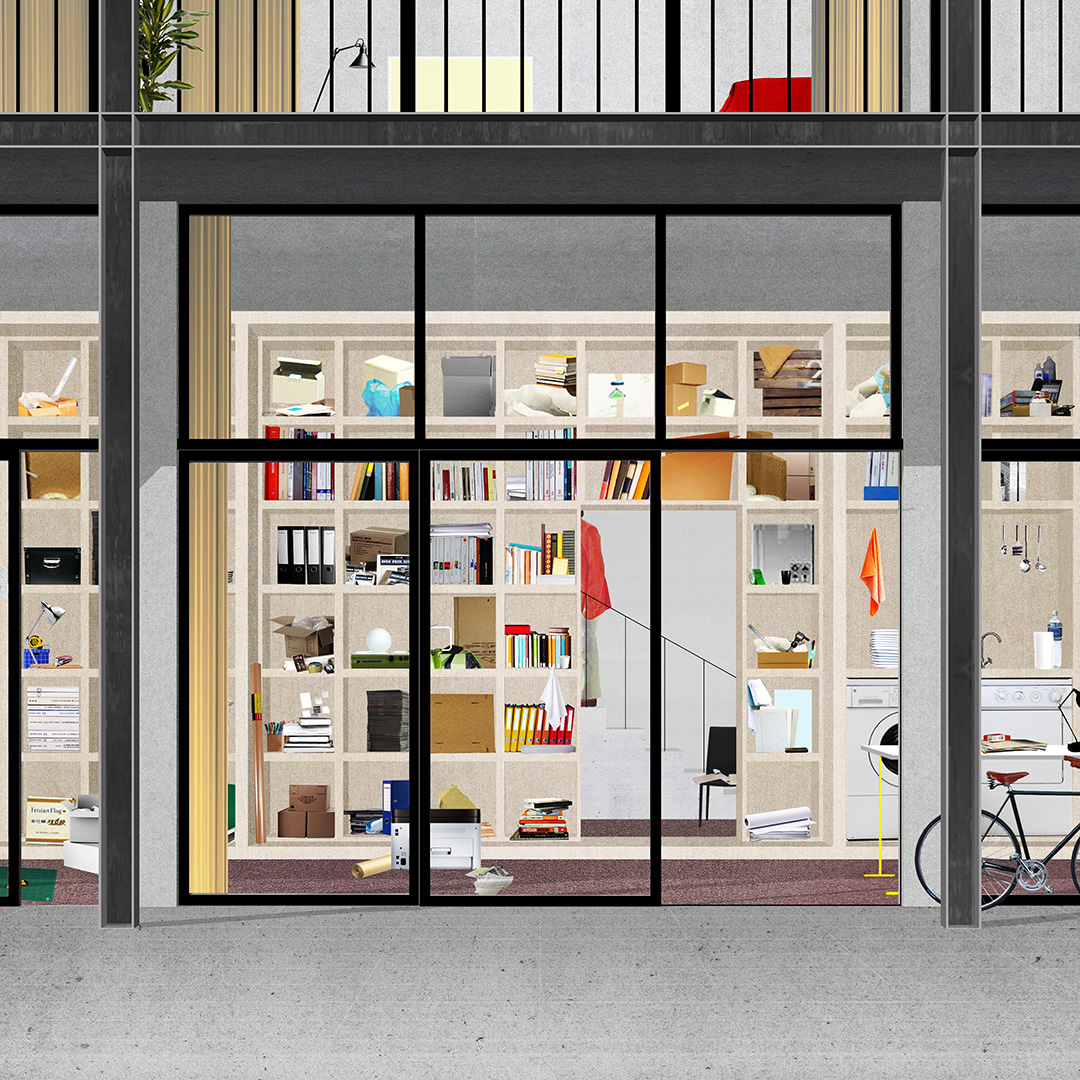
Everyday is Like Sunday
Edge: View of the ground floor

Everyday is Like Sunday
Edge: View of the enclosed office park

Everyday is Like Sunday
Field plan: Minerva, Zaventem. Total area 56.800 sqm. Gross floor area 20.000 sqm. Floor area ratio 0,36. Domestic units 300.

Everyday is Like Sunday
Field axonometric view

Everyday is Like Sunday
Field plan: Fountain Park, Bornem. Total area 69.000 sqm. Gross floor area 32.500 sqm. Floor area ratio 0,50. Domestic units 440.
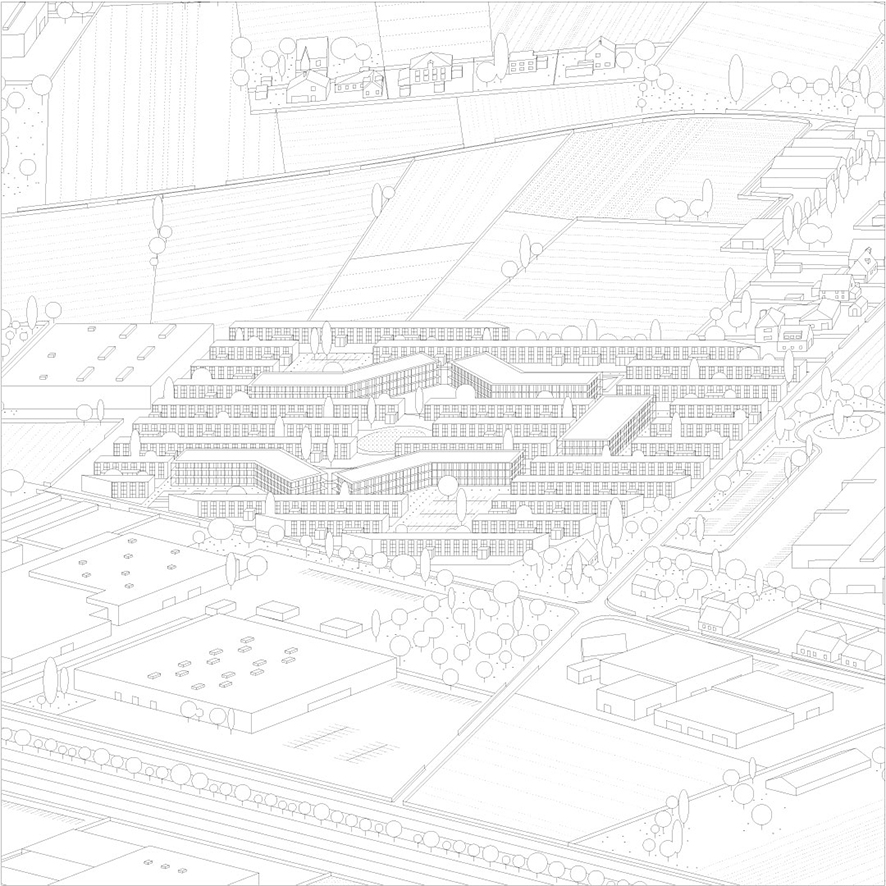
Everyday is Like Sunday
Field axonometric view

Everyday is Like Sunday
Housing typologies: Plans and section

Everyday is Like Sunday
Field: Housing with extension
Everyday is Like Sunday
Project for the transformation of office parks into living and working spaces
Team
Pier Vittorio Aureli and Martino Tattara, with Luciano Aletta, Ophelie Dozat, Hubert Holewik, Ezio Melchiorre and Giovanna Pittalis
Client
The study was conducted within the framework of the BWMSTR LABEL program at the Vlaams Bouwmeester
Links
Production/Reproduction: Housing beyond the Family, in Harvard Design Magazine 41
2015